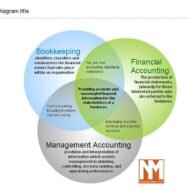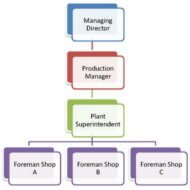Posted by Managementguru in Business Management, Change management, Decision Making, Entrepreneurship, Human Resource, Leadership
on Mar 30th, 2014 | 0 comments

Power and Balance in Corporate Governance Power has the ability to disorient a person’s behavior and attitude. When properly used it leads to height of efficiency, when misused it calls for calamity and disorientation in the entire business firm. It is nothing but the authority that comes with your job which has to be utilized for constructive purpose and at the same time to ascertain that things are “going in the right direction.” Precise use of power leads to a congenial atmosphere in your business arena”. Otherwise in course of time you might have to tackle warfare with your subordinates and the “undercurrent of animosity” might ruin your business success. How it affects Inter-Personal Relationship: When we talk about POWER it usually fits well into the top level management cadre, as managers and senior managers are assigned with huge powers in order to lead the firm in times of crisis as well as maintain the consistency of the nature of the firm. So when there is abuse of power consciously or unconsciously, people create a space between themselves and that particular person who misuses the power. So the result would be a lack of interpersonal relationship between the manager and the employees. Managers generally acquire and use influence that has its impact not only on the behavior of the individuals, but also on the organizational effectiveness as a whole which in turn affects productivity. Use Power as a Constructive Tool: In fact, authoritative behavior is often misunderstood by most of the managers in the business setup; there is a need for the managers to skillfully use their power in order to extract work from their teams as well as to maintain a balance between the extent to which authority must be used and the tolerance level of the employees’ (mind set). So it is more of a psychology which involves much critical analysis on the part of the manager to understand the constructive aspects of his authority and how employees at a lower level will always look up to him for support and guidance and not indifference. Power covers and affects the following important aspects, Discretion Crisis management Dependence of employees Responsibility Leadership Governance Interpersonal relationship Change management Environmental influences Reward systems Collaborative management Success of the firm and so on. In order to maintain his own integrity as well as the organisations’ the manager must be able to appreciate the relevance of power in management just by not looking into the literature but act in accordance with the situation. A detailed analysis of power dynamics makes the manager more effective in dealing with behavior inconsistencies in the organization. Try to be more open in your communication and make your employees feel that “You are always there” to support and guide them. This in turn will make your “Boss to have a second look at you” for a promotional pay. This discussion is from the manager’s perspective and there is more to be discussed and considered from an employee’s...

Posted by Managementguru in Financial Accounting, Management Accounting, Principles of Management
on Mar 27th, 2014 | 0 comments

Management Vs. Financial Accounting Management Accounting : The process of preparing management reports and accounts that provides accurate and timely financial and statistical information to the management Financial Accounting : The purpose of accounting is to provide the information that is needed for sound economic decision making concerned with classifying, measuring and recording the transactions of a business. What is Management Accounting: Management accounting is the updated version of what you call financial accounting and the most circulated term in corporate business arena. Management involves planning, organizing, staffing, leading and controlling the resources available in an organization, namely the physical and human resources. Much importance is given to personnel management as they are the priceless assets of any organisation.But it is equally important for a firm to record all its business transactions for future reference and tax audits. Thus the necessity of accounting comes into the fray. Financial Statements Made Easy Functional Difference: Well, accounting means something to do with finance. So, what is the big difference, if it is financial or management accounting? One difference is in the title, and the other in their function. The rationale behind financial accounting is statutory, done for the benefit of shareholders, customers, government regulatory agencies, other external agencies, potential investors and the like. It records all business transactions that are purely monetary in nature and no further analysis is done. Essential for Management Planning: Management accounting is voluntary and reports are prepared to meet the internal needs of management. We talked about planning, for which interpretation and analysis of such quantitative data and other inputs becomes necessary to plan for future needs of management. The main functions being attention direction and problem solving, management accounting is primarily concerned with providing information relating to the various aspects of a business, like cost or profit associated with some portions of business operations. It employs techniques such as standard costing, budgeting, marginal costing, break- even analysis and so on., Inputs also stem from industry data, competitor data, published reports by public and private agencies and research studies findings, thus widening its scope for improvement in business operations. Financial Accounting: Financial accounting is restricted to deal only with “generally accepted accounting principles” and any deviation is considered to be errors for correction. Though it provides valid and authentic information, it lacks timeliness. The former restricts the accountant to a mere book-keeper while the latter transcends the role of the accountant to that of total business information technologist. Here he becomes an evaluator of different functional areas like marketing, production, purchase and personnel. As modern business is huge in size, complex, diversified and decentralized in terms of operations, financial accounting just does not fill the bill, as information is required as when an event happens at various hierarchical levels of an organisation. This infographic from Goodaccountants.com details the industries that employ the most accountants and auditors, and the results are very interesting! Management accounting is inter disciplinary in character and derives inspiration from organizational theory, economics, behavioral sciences, statistics and management. Although the paraphernalia required for management reporting is complex and expensive, it is worth the try, as it tries to compare and contrast the actuals with the standards and bring out variances if any. This is quite useful in determining the cost-effectiveness of a particular project or to be prepared for suitable action. Management accounting is nothing but a management information system where the managers have to be techno-savvy in order to handle the total information resource and project it suitably to the management to take timely actions for the increase in growth, profit and sustainability of the...

Posted by Managementguru in Human Resource, Motivation, Organisational behaviour, Principles of Management, Training & Development
on Mar 18th, 2014 | 0 comments

Promoting Effective Communication in the Work Place A purpose or an idea to be conveyed is needed for communication to happen. The question is how well or how successful you are in transmitting the message (mind you! without transforming it) to the receiver in the proposed meaning, whatever the channel might be! Communication must serve the following functions… Effective Control Motivational expression Information Fundamentally communication helps in controlling the behavior of the members of an organization in several ways. Either formal or informal, it controls the activities of the employees by prescribing certain procedures of communication to be followed when there is a grievance or a difficulty regarding his/her job, the work situation etc. Communication provides Vital Information: Communication also motivates people by clarifying what needs to be done, how to be done and how they are performing and what can be done to improve their performance. Most important function is that communication provides vital information that is crucial for members at all spans or levels to make effective decisions. The feelings of members are also articulated as grapevine in an organization, and in a way it serves as an outlet for their emotional expression. Grapevines: Grapevines are always not harmful, they might even give you information about the pulse of people working for you and if you are really sharp, “you can work it out to your advantage. Communication is always referred to as “oxygen”, we can feel only when it breaks down. Communication plays an important role in managerial and organizational effectiveness. Nevertheless, on the other side it can be the root cause of all the problems in your organization. This excellent infographic on Business Etiquette and Body Language Blunders clearly indicates how body language and gestures influence communication to a greater level. Source: www.thewebsitegroup.uk Effective Communication: In general, effective communication is the prerequisite for any healthy organization and the attainment of its standard objectives. Most of us are in fact aware of how our vocabulary has been modified to reflect political correctness. For instance we have replaced certain words like handicapped, blind and elderly by physically challenged, visually impaired and senior. One must be sensitive to others feelings. Words are the primary means by which people communicate; so due importance must be given for politically correct words both in the society at a larger level and in firms at the micro level. Increasingly, I find people like being addressed by their designation capacities. Even people might get offended if you call them by their first names as it is regarded to be disrespectful. But I think it is always better to address a person giving due respect to his position if you are reporting to him. That way there is no scope for conflicts and strained relationships. Western countries are more modern in their outlook and have a broader perspective on human interactions than the east. Gestures: Words mean different things to different people. In organizations, people of different background work together, so they have their own language of expressing their opinions and ideas. So it calls for a uniformity of language that is well understood and appreciated by all. Gestures also play their part in communicating ideas. So self controlled expressions, proper behavior are also necessary that completes a communication process. Ultimately proper communication leads to… Satisfied employees Effective feedback Organisational efficiency Freedom for suggesting ideas Enhanced interpersonal relationships Closely knit organisational network Encouraging trust and openness. Communication is an on-going process and the purpose is “not to dictate but to make the employees understand the big picture” as to how the process imparts success and viability to the...

Posted by Managementguru in Business Management, Human Resource, Organisational behaviour, Principles of Management
on Mar 10th, 2014 | 0 comments

Line and Staff Authority LINE AUTHORITY: It is that authority which a superior exercises over his subordinates to accomplish primary objectives of the organization. The superior issues orders and instructions to his sub ordinates to complete the tasks. This authority is delegated to those positions or elements of the organization which have direct responsibility for accomplishing the primary enterprise objectives. The flow of authority is always in the downward direction from the superior to the subordinate and such relationship is called LINE RELATIONSHIP that exists in all departments of an organization. ROLES OF THE LINE RELATIONSHIP: 1. As a Chain of Command: Line officials are in the chain of command from the highest position to the lowest position in the organization. Each successive manager exercises command over his subordinates. 2. As a career of accountability: Each executive in the line is accountable for the proper performance of the tasks assigned to him and every subordinate is answerable to his superior. 3. As a Channel of communication: Since the line relationship involves issue of instructions from the authorities and reporting from subordinates, it facilitates and serves as an effective channel of communication. Line relationship helps the organization to work properly by Providing the decisions required for functioning Furnishing reference points for the approval of proposals Serving as a means of control by setting the limits of authority Establishing authentic communication channels to make leadership process effective STAFF AUTHORITY: Literally staff implies a stick carried in the hand for support. In the context of management, it implies to those elements that help the line authorities to function effectively in accomplishing the primary objectives of the enterprise. Staff provides advice assistance and information to line managers and they are distinguished into three categories namely, personal, specialized and general staff. They reduce the burden of line authorities and they too have the right to command and extract work from their subordinates. According to Henri Fayol “staff is an adjunct, reinforcement and a sort of extension of line manager’s personality.” LINE AND STAFF CONFLICTS: As always, functional and decisional conflicts arise between line and staff members. The causes may be attributed to the following reasons. 1. Line managers grudge against the staff personnel: a) The staff authorities try to encroach upon the line managers and tell them how to do their work b) Lack of well balanced advice from the staff managers c) Staff managers are not directly accountable and sport a jealous attitude towards line authorities d) Staff managers fail to see the big picture objectively and their interests are confined to specified situations e) Staff often tend to impose their superiority on line managers 2. Staff personnel complaints against the line managers a) Line managers don’t want to listen to the suggestions of the staff and make it a point to resist new ideas. b) Lack of authority on the part of staff managers to implement their innovative ideas and hence the dependence on line authorities. c) Line managers do not utilize the services of staff personnel properly and effectively. 3. The workers’ attitude a) The authority relationships between line and staff specialists are not clearly defined most of the time b) The basic difference in attitude and perception of the line and staff managers create difficulties for the work force in carrying out orders and...

Posted by Managementguru in Human Resource, Interview Questions, Principles of Management
on Feb 27th, 2014 | 0 comments

Interview Interesting Aspects An interview can be explained as a mutual conversation or a one to one meeting that gets stretched into a “recruitment process or promotion.” In French, from which it originates interview means ‘inter-sight’ and in Latin, it is interpreted as ‘seeing each other.’ Nowadays interview is a powerful tool in psychology, in the healthcare profession as well as in business. Too many approaches in the interviewing process may be successful as fact finding tools but without looking at the dynamics existing between an interviewer and interviewee; such meetings then become lifeless. The notion of an interview should not only aim at collecting scientific data but also look into the human aspect to capture the essence of a person. Only a trained interviewer must be allowed to evaluate the interviewee’s motivation, personality component and the influence of environmental/ emotional problems on him/her. The two common pitfalls in an interview are the ‘stereotyping’ of the individual and the unconscious exercise of personal bias. Is it wise to judge a person based on similarities to some other person/ trait? ‘Halo Effect’ is the tendency to judge a person based on one of a few specific characteristics- the traits liked or disliked by the interviewer need not be superimposed on the interviewee to decide if he is suitable for the job. All depends on the interviewer and his characteristics which help or hinder an interview from the interviewee’s view point. Care must be taken on the part of the interviewer not to conclude the interview in an abrupt manner and it is also necessary for him to create a favorable image for the company in the mind of the interviewee. The interview is not to be considered merely as a selection technique, but as a means of in- depth analysis that facilitates closer and enhanced communication. This approach is very much necessary for psychologists, teachers, managers, leaders and the like. Definition: The interview is a conversation with a purpose. There are three purposes. 1. Obtaining information– Collecting relevant data about the candidate’s background, training, education, experience and interests. 2. Giving information– Apprising the interviewee with the present position of the company, the future plans, specific job and the personnel. 3. Motivation– Instigating the candidate to join the company Advantages of Interview: Interviews prove as a better means to measure the ability and traits of a personality rather than through written tests or other techniques. It is easy to determine how a person reacts in a conversation and whether he is good looking (here it means if he/ she is presentable, looks are equally important). A skilled interviewer can easily determine the personality traits such as loyalty and responsibility that can be expected from the candidate during this personal meeting. Limitations of Interview: · Stereo typing · Halo Effect · Personal bias Interviewing Techniques: A. Patterned Interview: This was developed by Mc. Murry. Senior recruitment, promotion and appraisal interviews fall under this category. This patterned interview contains no questions related to ‘job skills’. Basically it is conducted to appraise personality, motivation and interests. Reference checks and academic records determine knowledge and job competencies. The following personality traits could be measured through patterned interview according to Mc. Murry: i. Stability ii. Ability to get along with others iii. Self-reliance iv. Willingness to accept responsibility v. Freedom from emotional immaturity vi. Motivation B. Directive Style: This type of interview is appropriate when the interviewer seeks factual information only where the interviewee is not given much freedom of expression and so becomes defensive. There are also chances that the relationship between the interviewer and the interviewee might be impaired. C. Non-Directive Style: This requires more time, and suitable for exploring sensitive matters, understanding feelings and...










